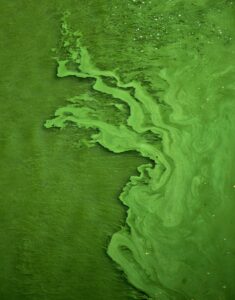Just one-in-three UK residents believe suppliers will clean up rivers, lakes and coastal areas. As the crisis grows more toxic, the victims of a failed industry speak out.
27% of British adults are now considering withholding payment from their water company because of a collective failure to tackle pollution events. The numbers, from the charity Surfers Against Sewage, only really scratch the surface of deepening distrust.
The organisation’s latest report lays bare how pollution events are still increasing. 2,487 were recorded in 2024 – more than double the Environment Agency’s targets. Last year, effluence wound up in our rivers 592,478 times. Total discharge lasted for 4.7million hours. Yet £1.2billion was paid out to shareholders by private water companies for the 12 months to April 2024.
The situation is not only wildly offensive to anyone who values nature and fairness. It’s also harming human health. Diving into Surfers Against Sewage’s latest Sickness Reports, based on information submitted through the Safer Seas & Rivers Service app, some worrying trends emerge. In the UK, five people are now falling ill due to poor water quality every day. In total, there were nine years’ worth of absences from work in 2024 because of what’s in the country’s rivers, lakes and seas. Looking at the ailing economy, analysts estimate the cost is around £493,000. But putting a price on things feels reductive.
‘I became critically ill and spent six weeks in hospital care,’ says Suzi Finlayson, a 42-year-old mother of two who contracted a blood infection leading to life-threatening endocarditis after swimming in the sea near Bognor Regis. ‘This experience has completely changed my life, I’ve faced a long recovery, ongoing health challenges. This has impacted my family, and the financial strain of closing my business and being unable to fully return to work.
‘At the time of my infection, a sewage overflow from three pipes at Aldwick Beach lasted 343 hours [14 days], as reported by Southern Water. I was regularly sea swimming two to three times a week and was advised that my infection could have entered through a cut, my skin, or my mouth,’ she continues. ‘In all honesty I don’t trust the water industry. Lives and the environment are at risk and there is a complete lack of transparency, accountability and urgency when it comes to public health and environmental impact.’
It’s far from an isolated case. Charlie Clarke took a dip in Clevedon Marine Lake, close to Bristol, in preparation for the Ironman endurance race. Collapsing the following day, after ECG and blood tests were taken while admitted to hospital he spent four months undergoing further examinations. Eventually, it was determined a virus caught from dirty water had triggered a minor heart episode.
‘This experience and diagnosis set me back in a number of ways. My everyday life was impacted, as I was unable to raise my heartrate while in recovery. Everyday tasks became a barrier to a normal life – for example commuting by bike was no longer an option,’ he explains.
‘My main social outlet is sport, which was put on hold for several months. This impacted my confidence further and left me particularly isolated from football and cycling teams. It took me around a year to become confident enough to raise my heartrate to its maximum,’ Clarke adds.
Environment Journal has covered the UK water crisis extensively over recent years, with little reprieve from negative news. Last year regulator Ofwat confirmed it was investigating every supplier in England and Wales, but the headline coincided with announcements of further price hikes for customers. Almost 12 months on, the fact pollution incidents have continued to climb is more than concerning. And does little to dampen calls for industry-wide reform and an overhaul of the entire system.
The regulator itself has been accused of putting corporate profits over people and operating a revolving door policy with suppliers. Senior level staff leaving the public body have been found working at private companies, and vice versa.
Meanwhile, the Environment Agency has been slammed for allowing those firms to ‘mark their own homework’ by deciding on the category of pollution events. Something insiders say is a result of budgets decimated during the Conservative Party’s 13-year-tenure in Downing Street. That the situation has worsened under Labour, a government that took power last July, will do nothing to reassure critics positive change is underway, although recent changes to the authority’s powers have some suggesting negligent firms will soon be held more accountable.
‘The EA is increasing staff and inspections to prioritise water company enforcement. We expect a rise in enforcement action for illegal sewage spills, less predictable is exactly what form this action will take,’ says Richard Reichman, Partner at BCL Solicitors LLP.
‘The EA has said that there isn’t a one size fits all approach to enforcement,’ he continues. ‘Its newly unlimited variable monetary penalties and other existing civil sanctions will surely be attractive due to their speed and efficiency, but the EA will also be considering further prosecutions of water companies, and potentially senior management, in the most serious cases.’
More features:


















